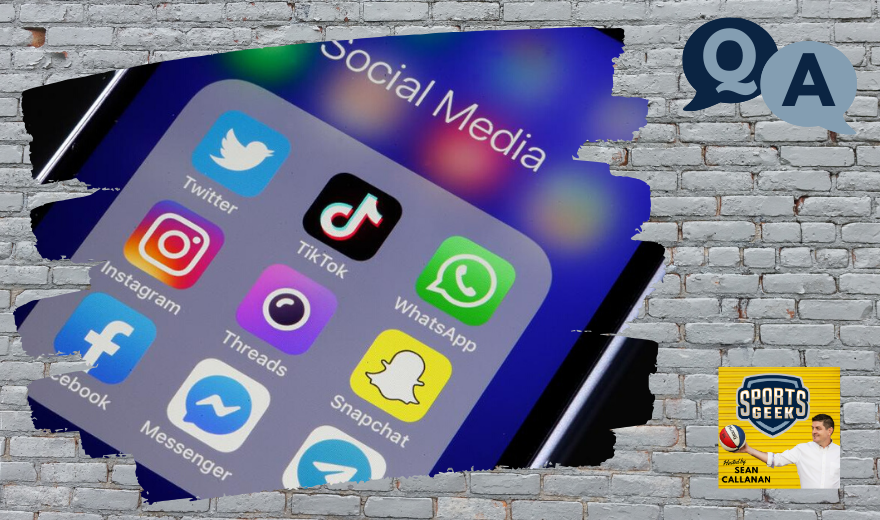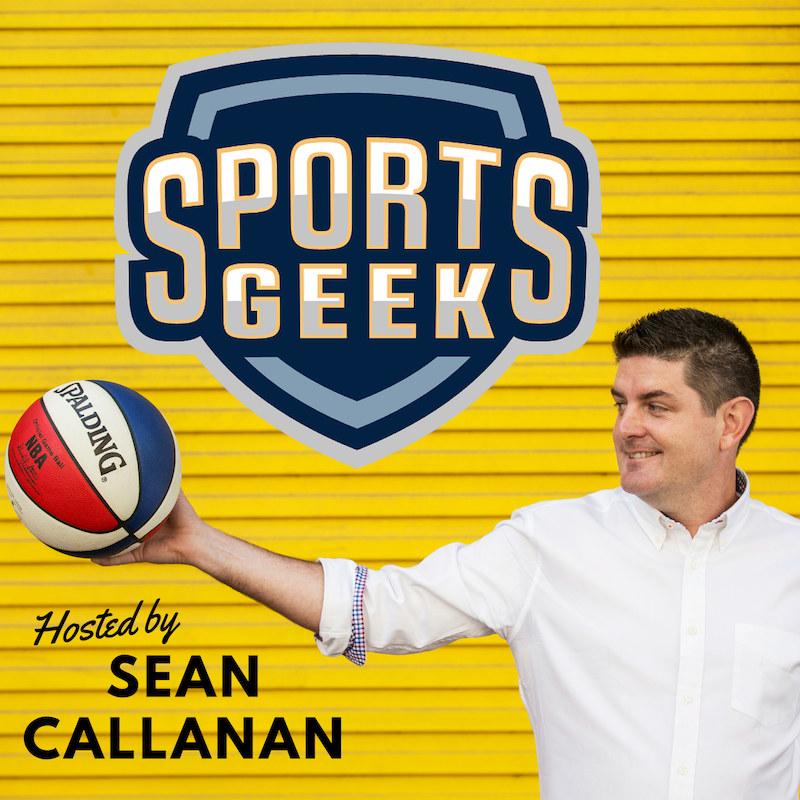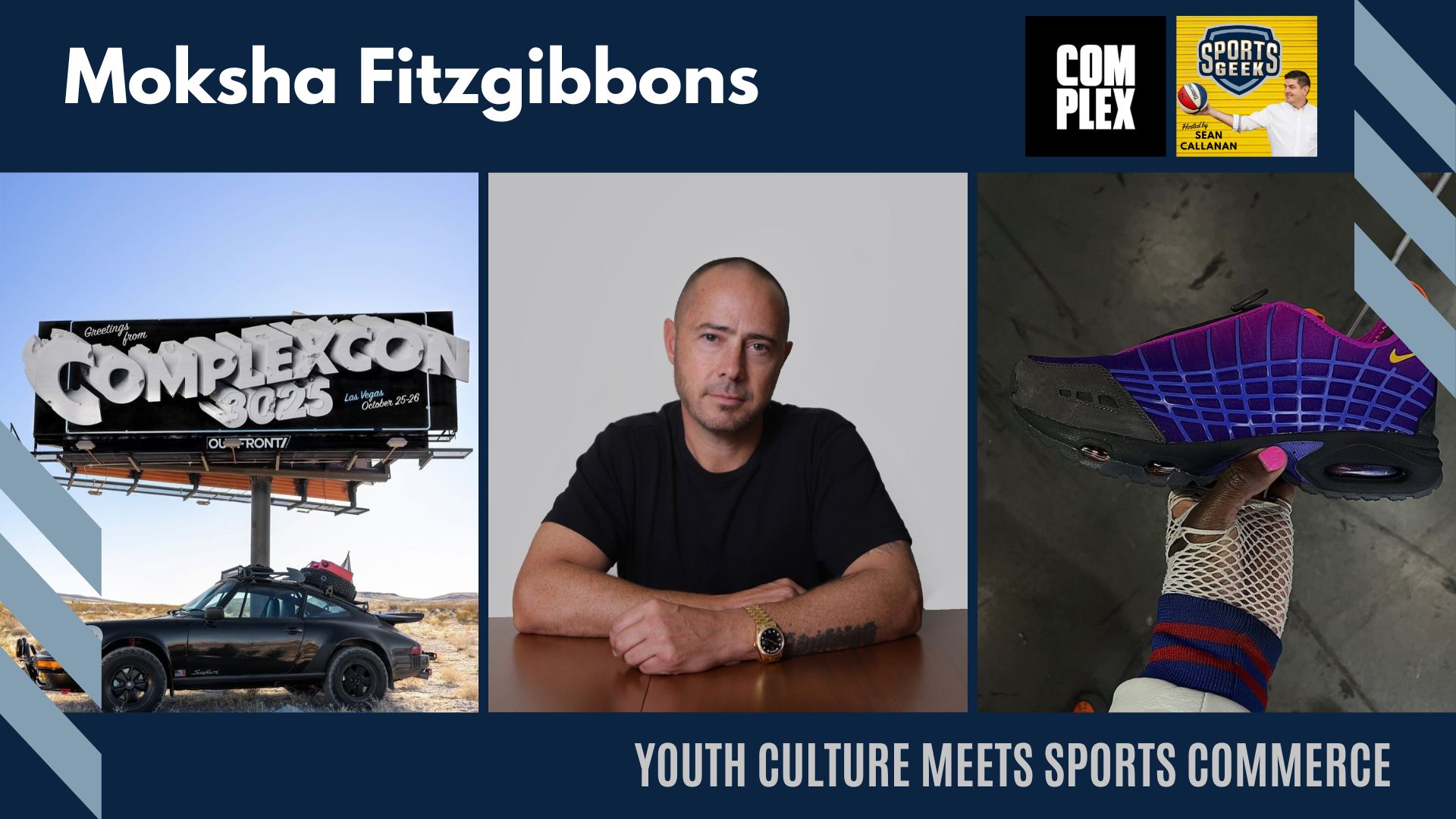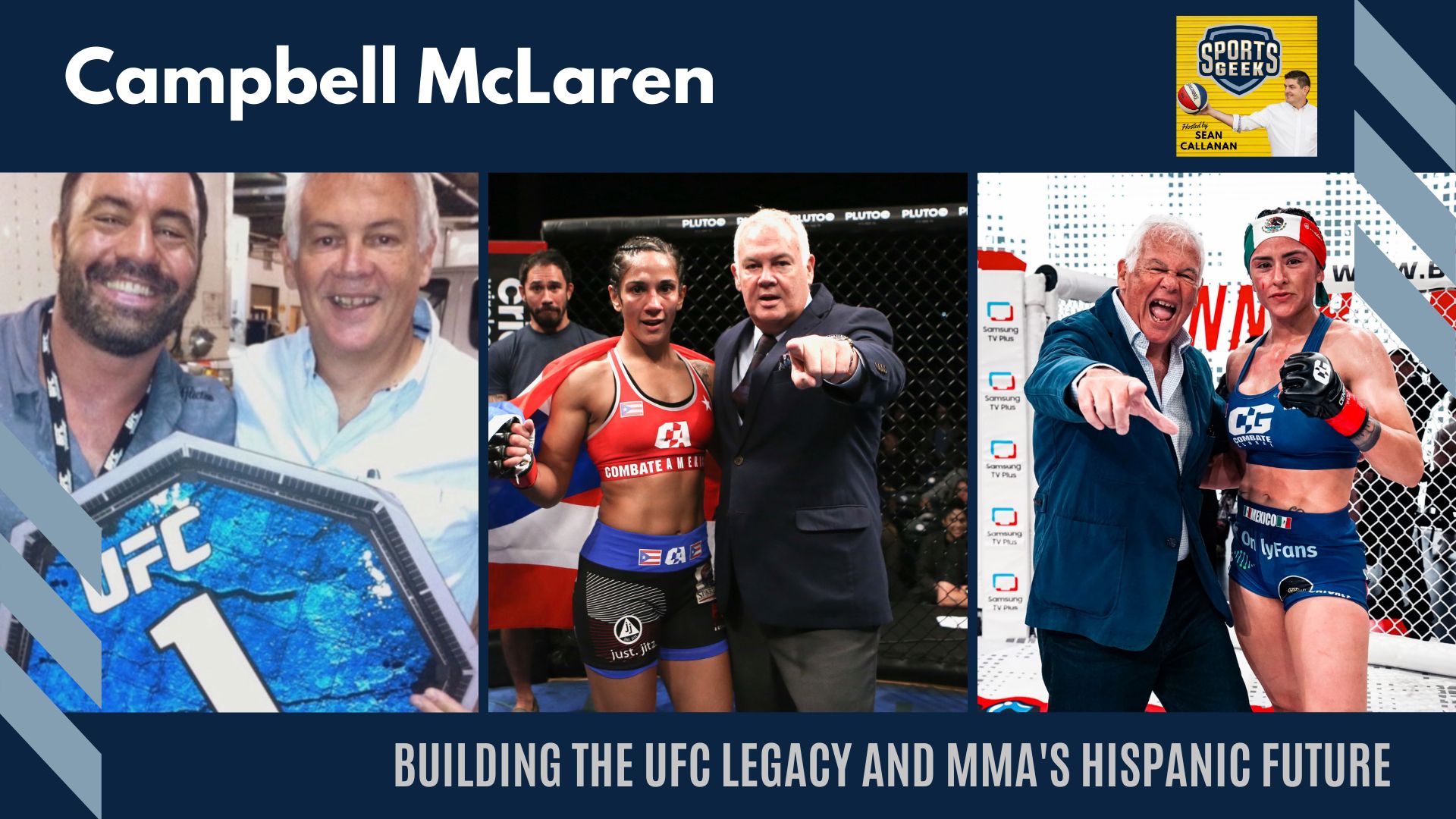On this Sports Geek Q&A episode Sean Callanan answers the following questions:
- What is your take on TikTok and sports? Lenny Goh asked me in person
- How do you see traditional sports coexisting with esports? Kunal Sheth via Linkedin DM
- Who would you like to interview? Ben via email
Listen to Sports Geek Q&A for the answers
Can't see podcast player? Click here to listen
Read Sports Geek Q&A answers below
Question one comes from Lenny Goh former guest from Tradable Bits. Asked me while visiting in Melbourne and in real life question.
He asked me What's your take on TicTok and sports?
I think it's interesting. I think it's really interesting that it's the first time we've had a real player in the space over the last couple of years, like early on 10 years ago, we had sort of one platform being added a year.
You know, people going on Facebook and Twitter and Instagram. And then we've had a few that sort of come and go. Snapchat has had a crack and it's still sort of lingering. But you cannot ignore. I guess, the viral nature of TickToc and the download numbers.
Now they are slowing a little bit, which is going to happen when more and more people sign up and you start plateauing. I.
Think from a sports point of view, it's not the same. It's, you know it's a new distribution platform.
So using Digital to Dollars Know your Distribution TicTok is another distribution piece, but it's one that's pretty unique because the content is created on there is pretty unique to that platform.
And it's actually a content creator that actually its content gets to other platforms. So you might see TikToks on Twitter, on Facebook, those kind of things on Instagram.
So I think it's not along the same lines as those original big three where what is our strategy? What are we putting out and how often do we put it out? It is really understanding what works, what doesn't.
Having a little bit of a play test and learn don't commit to a long term strategy of this is what we're going to do with TikTok for the whole year because you don't know.
I think learned from others, obviously leverage the intelligence inside your organization. Find out who in your organization's watching TicTok creating TicToks.
They will know better than someone who is like myself. That's watching it from afar. You've got to talk to people who are actually using it and learn and then learn from what other brands and that are doing.
For me, I think the big opportunity is UGC and TikTok.
It's not going to be easy, but how can you create challenges for your fans? Because it's so music based. If you have music content, I think that gives you a definite advantage.
I think we saw that with the Riot Games, the League of Legends World Champs with their true damage music.
Their band that they again created a band out of nothing and created a song. And they pretty much said use the hashtag, #makeitlegendary on TicTok to sort of effectively give the content to the fans and let them have a go.
So, you know, I think it is a bit about testing that. How can they get fans involved? How can they set challenges for their fans to see what comes back?
And I think having that improv mentality, if you've done improv before and I'm lucky enough to do it here, did it with the Melbourne Improv.
They have this very much this philosophy of happy fail.
And I really think you should be tackling TicTok in that in that manner.
Embrace failure and have fun with it. Is what I would do.
So thank you very much, Lenny, for catching up. And thank you very much for the question.
Question 2 came from Kunal.
He's from LinkedIn and linked in message so you can send me a message via LinkedIn.
His question is how do you see traditional sports such as tennis, cricket, basketball, etc coexisting with emergence of sports as a sports itself has become a professional sport. What then happens to audiences of both?
Now I'm not I'm not in the camp that they are mutually exclusive.
I think we will find over the next five to 10 years that esports fans and sports fans are very similar in nature.
And they as I said, they're not mutually exclusive.
So people can. Fans can consume League of Legends or Dota or Counterstrike or Rocket League and still be football fans. Tennis fans, cricket fans, basketball fans.
So I think in the same way, that word now being given far more content. If I call sport a content, far more opportunities to consume more content around sport. This is just another choice.
Another choice, I should say. And so it just becomes potentially fragments of market and people's attention. That's what we're all fighting for.
Their attention becomes fragmented.
So there may be certain sports that they may have followed in the past that they no longer follow because a sport in this case or a particular sport or a particular title or gaming itself, like playing the games, starting ease into that time.
But I I don't think they're mutually exclusive. I think you'll see more sport. Jason's gaming titles doing more things.
So that's like FIFA and NBA 2K. But I do think you'll see sports and sporting bodies that don't have strong ties to a gaming product figure out a way how they can connect. And we're seeing that with gaming activations at sporting events.
I think that will be a trend that continues because it's a way to engage that younger demographic and say, hey, we're we're also doing stuff that you like. So I do think they will compete.
Eventually. But I don't think I think they'll compete as the way the same way is that sports compete against one another for for many, many years. So I do think it's going to be something that both can grow together.
And I think what I'd like to see is more of the learning between both. How how sports can learn from a sports and gaming and then vice versa.
What can a sports and gaming load learn from the world of sport? What it does very well.
Now, the last question here in this Q and A is from Ben.
He sent this in via email. You can do so via Sean at Sports Geek HQ dot com. He asked me who would I like to interview?
Which is a good question. Two hundred and fifty seven odd episodes in.
I've been lucky enough to interview a lot of you from people in the world of sport. I did tick off the first.
If you'd have asked me before 2014, my answer would have been Mark Cuban.
But obviously I interviewed Mark now an episode 62.
You can actually see this list sitting in my in my goals, in my chair, in goals my list on SeanCallanan.com. Anything's possible list where it sort of lists some of the milestones and some of things I'm chasing down.
And I sort of go in there occasionally and tick things, some things off. And so some of the people that I've still got on that list that I do want to have on a podcast and be a basketball fan myself. Michael Jordan, Magic Johnson.
Big, big on that list. And I'm going to keep him on that list till I interview them, but not only for their basketball exploits, but really for what they've done in the sports business world. In their post basketball careers, I think they're both on a remarkable, remarkable job.
I want to interview a current Australian sports captain.
I've been able to interview some some great sports stars and people who have played sports for Australia in in instances.
But I want to talk to a current captain and what they're going through.
I think my next podcast that might be Mark Cuban like would be Steve Ballmer, the owner of the L.A. Clippers. I really like what the Clippers are doing.
I love Steve Ballmer's energy.
I would love to be out to spend half an hour talking to him about the world of sports business. I think it would be absolutely fascinating.
And then from a from a podcasting point of view and a content creator and the and the analysis of the media. I've been a long time listener of Bill Simmons and a longtime reader. I'd love to chat to him about one his career, but also his take on the media and what he's doing at the Ringer.
So if anyone can help connect me with some of those guests, I very much appreciate it.
Send in your question
sean AT sportsgeekhq.com
+61 407 047 200
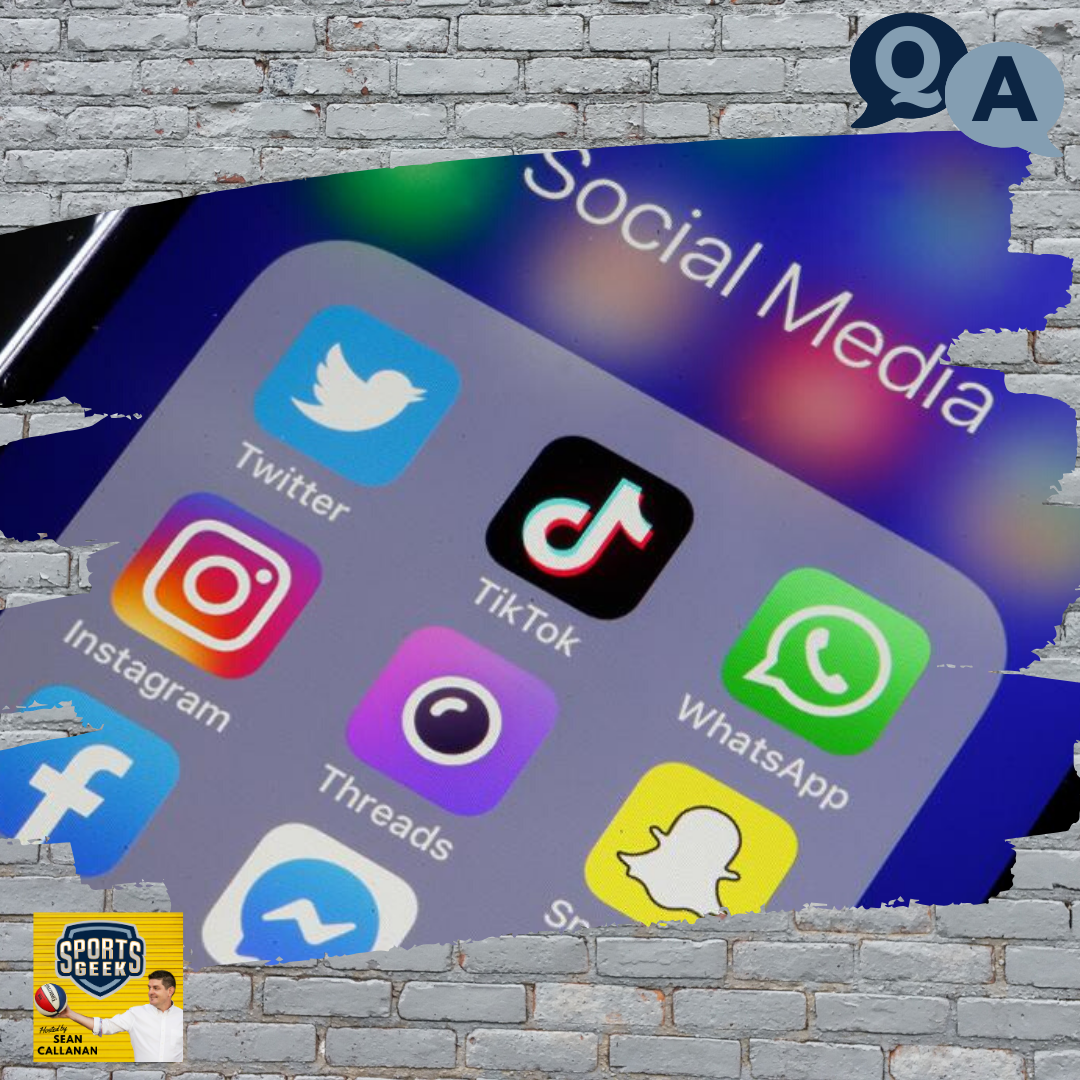
Listen To Sports Geek
Recent Sports Geek Reads
- Australia’s $4.6T Sports Tourism, Media Consumption & YouTube TV updates
- YouTube TV Drops Disney Channels While Amazon Ad Revenue Soars & World Cup Tickets Surge
- AI Layoffs, OpenAI’s For-Profit Transition & NASCAR battle
- Saudi Skyscraper Stadium fake, Messi MLS & Liverpool’s AI plan
- Dodgers Hit $1B in Revenue as Nike Revolutionizes Footwear & UFC Expands with Paramount+
- Apple’s $750M F1 Deal & MLB’s Shifting Viewership: Changing Media Rights Landscape


